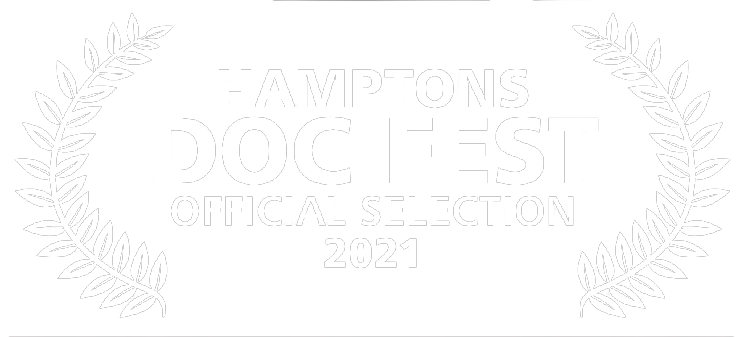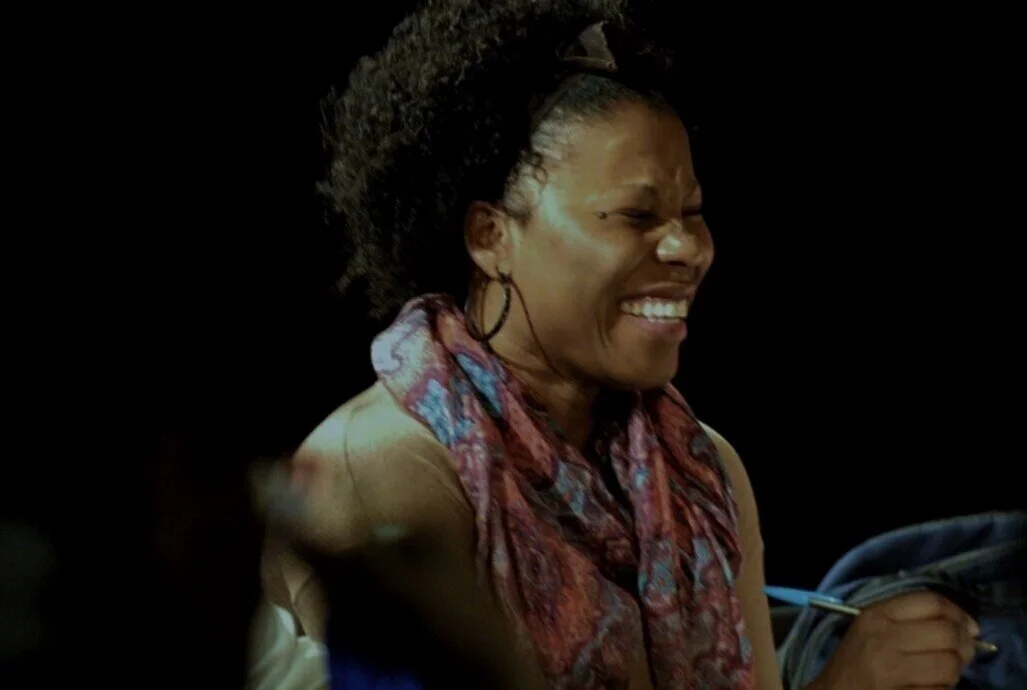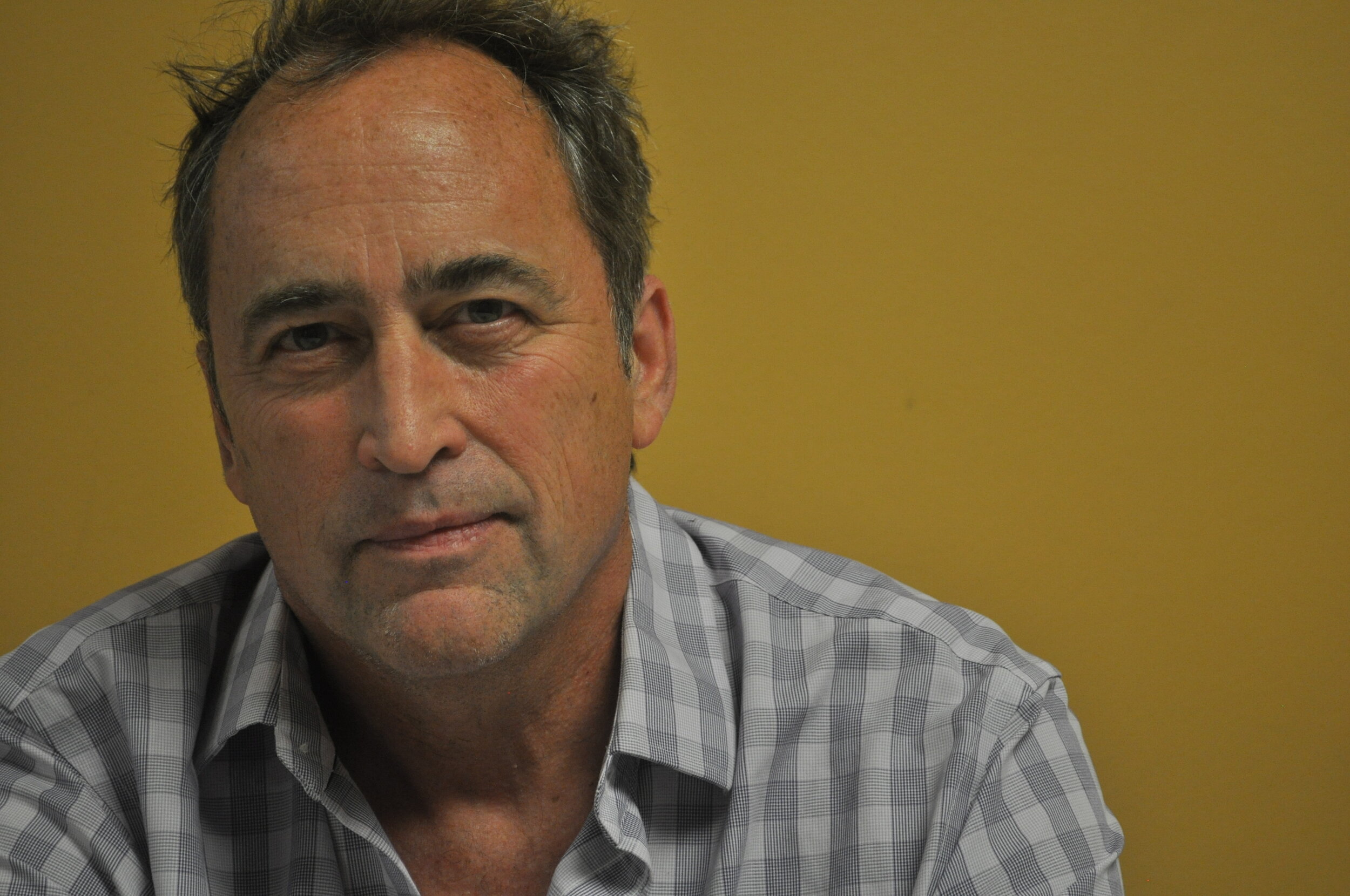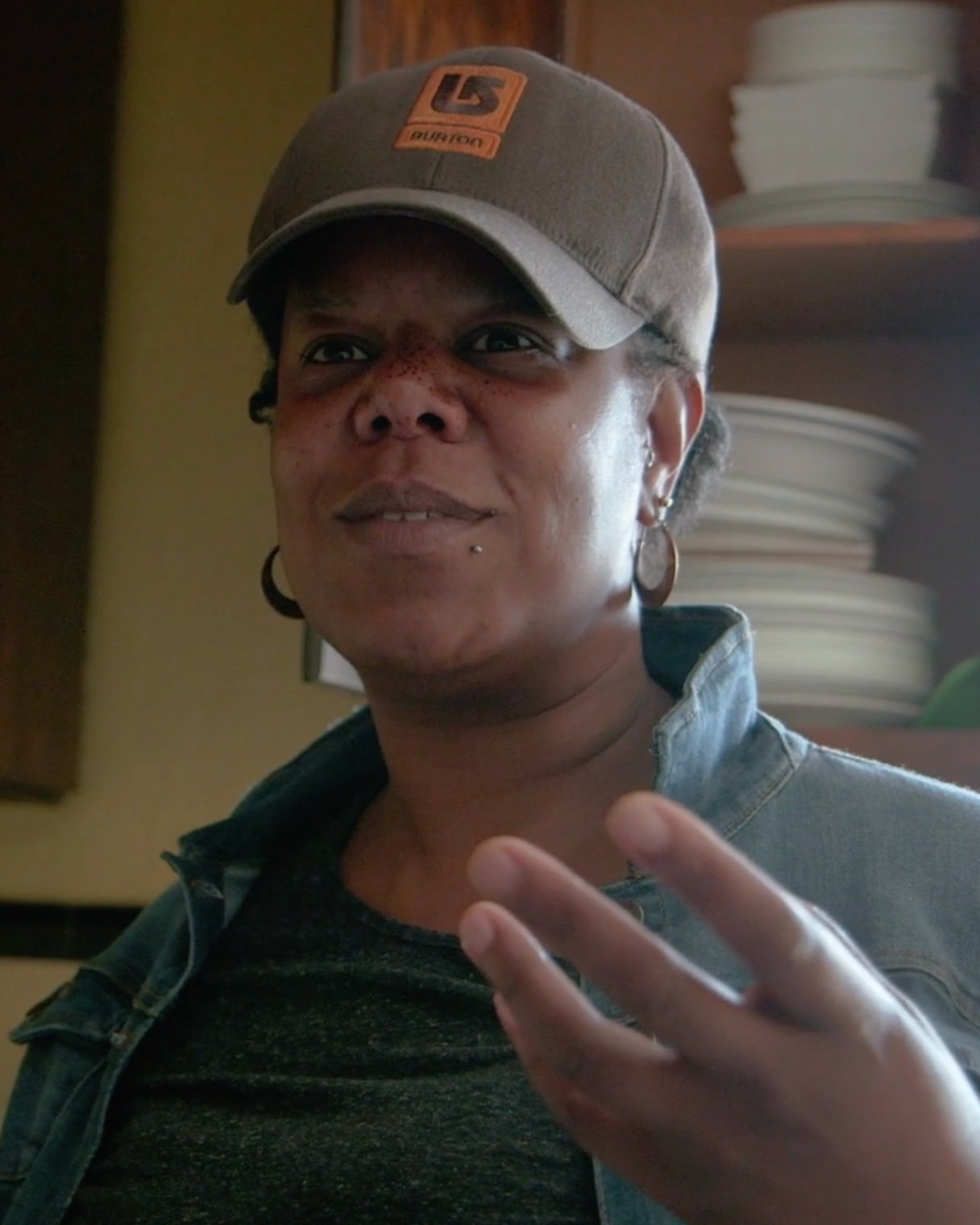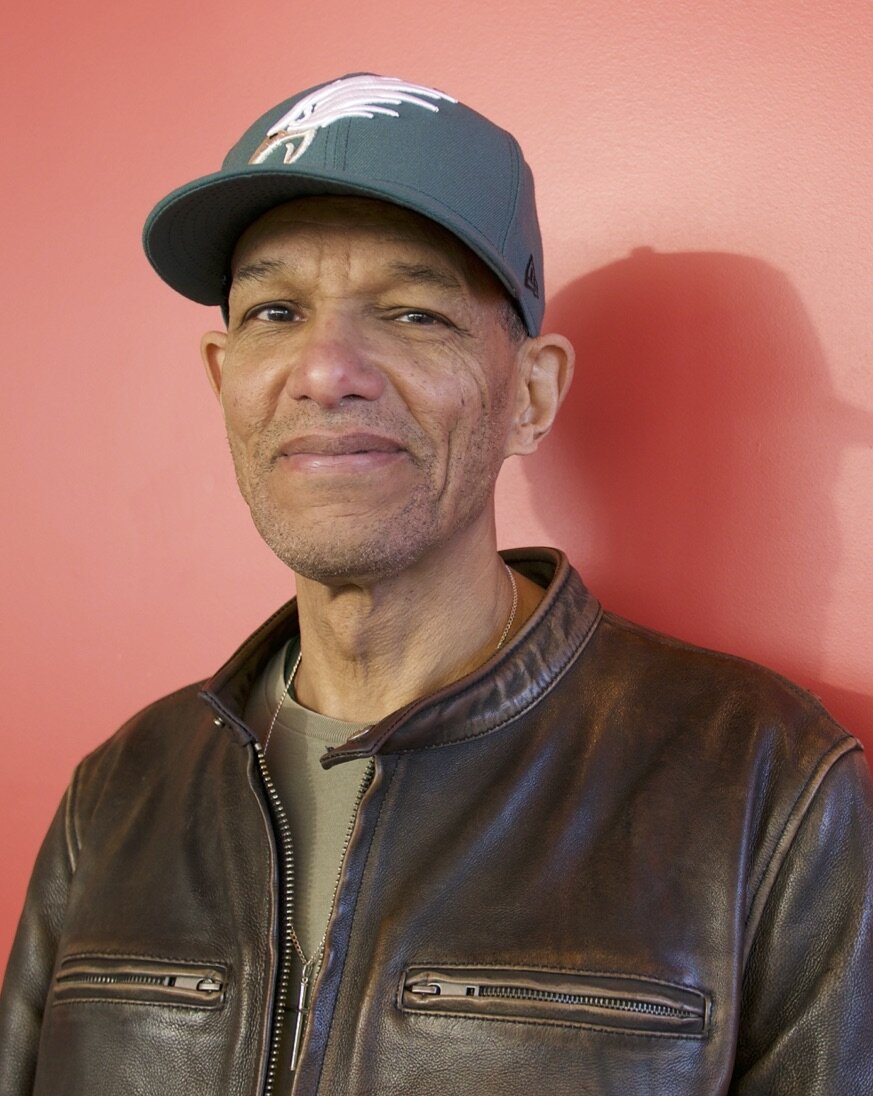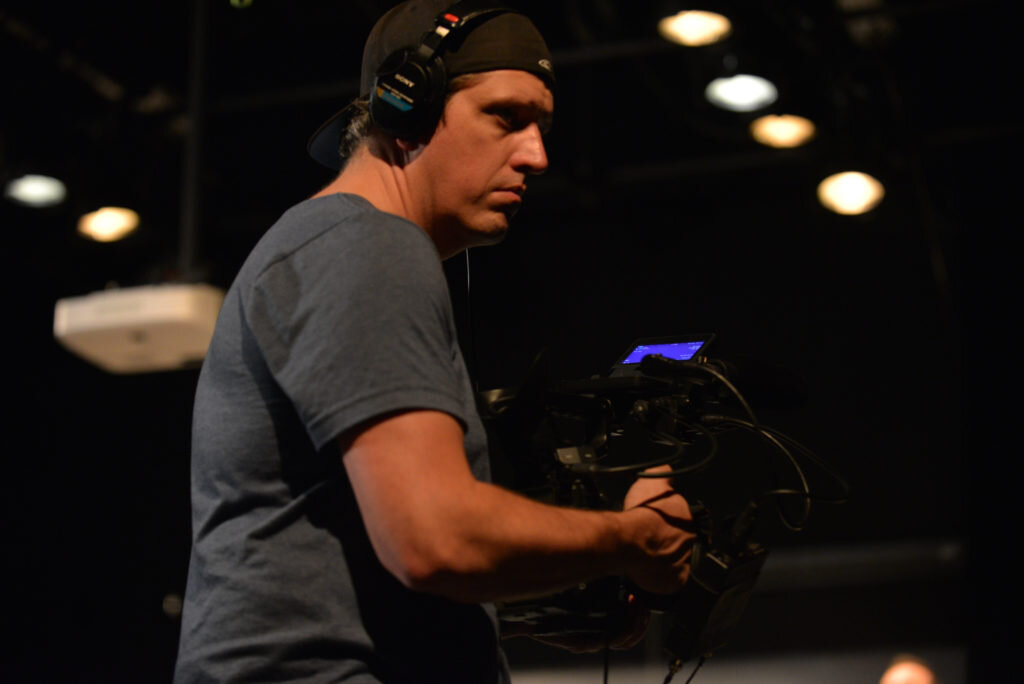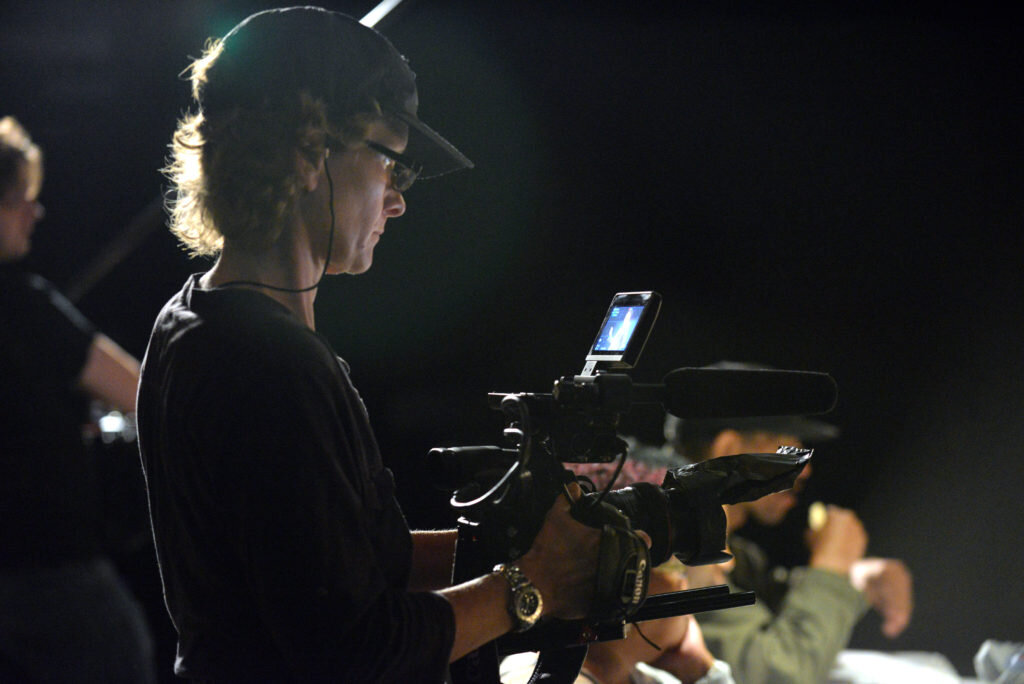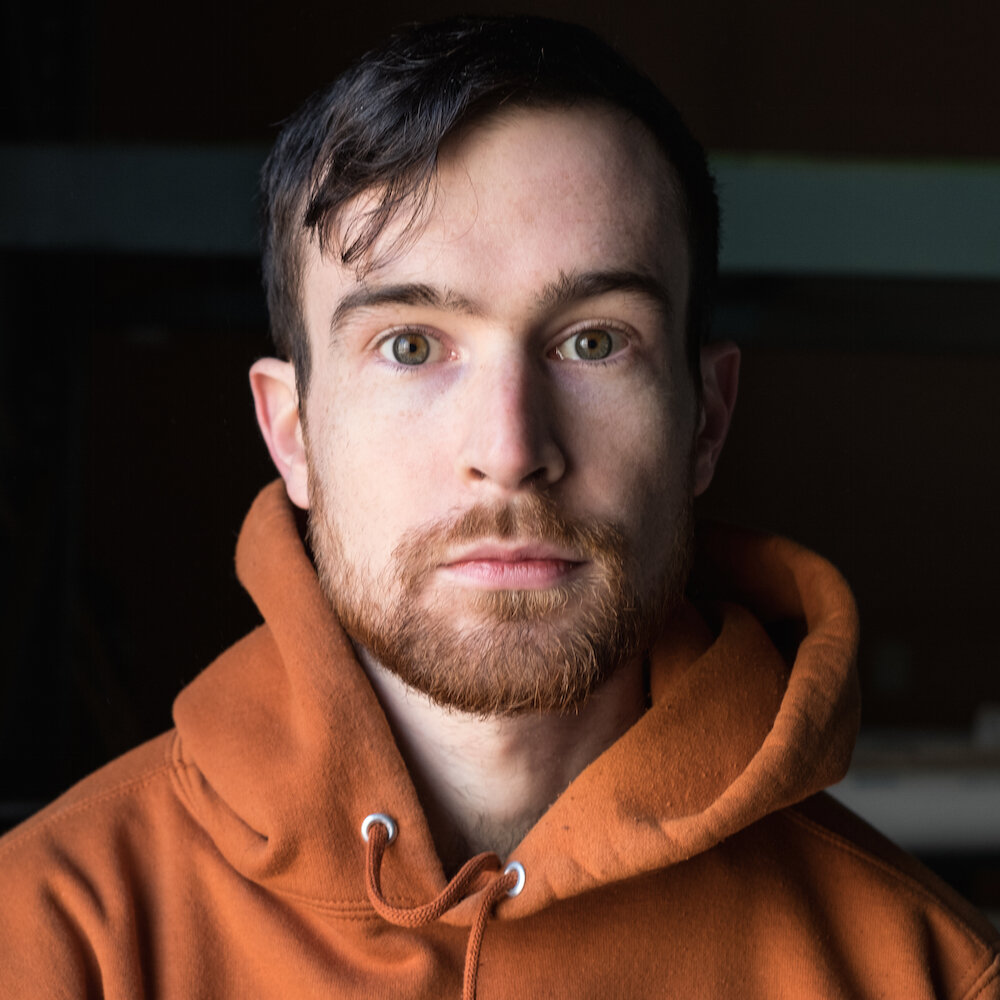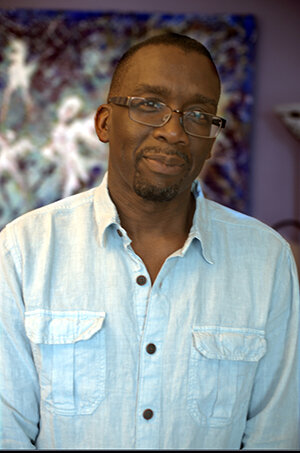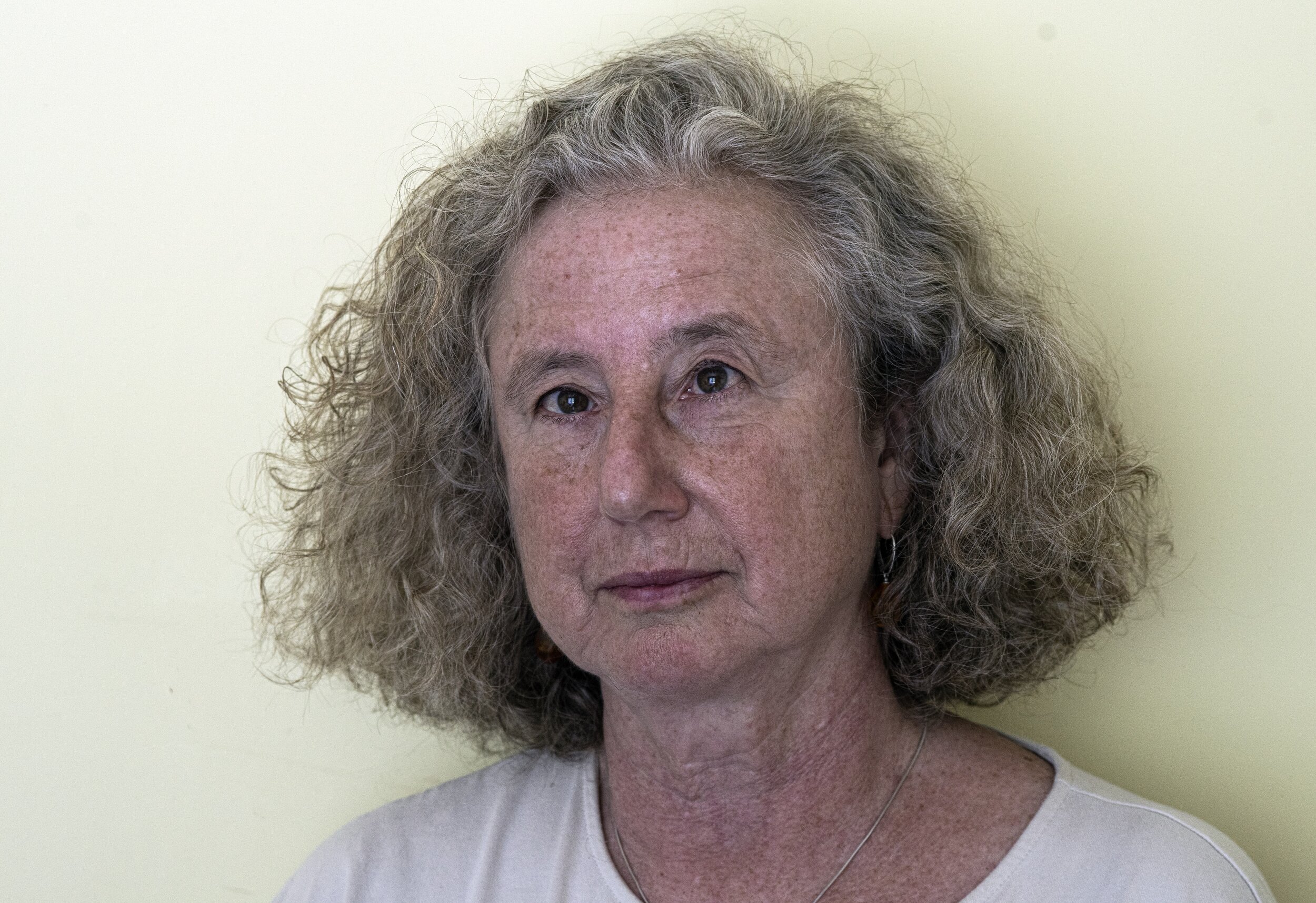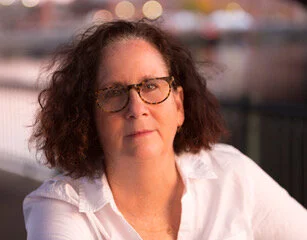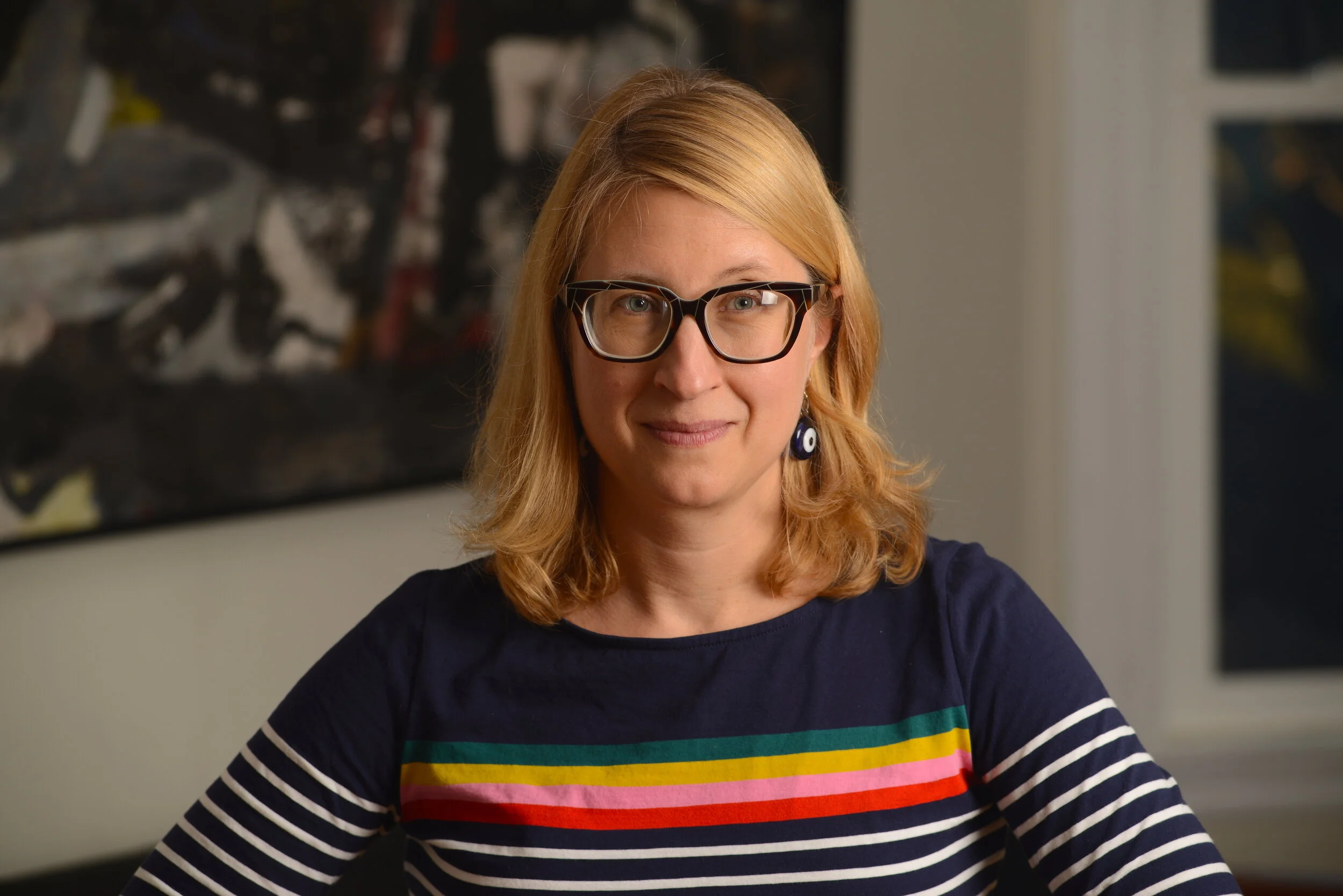
“AN ABSOLUTE MUST-SEE”
“LANDS LIKE DYNAMITE”
kinema.com for group or theatrical screenings
***BEST FEATURE DOCUMENTARY AWARD AT MOREHOUSE COLLEGE HUMAN RIGHTS FILM FESTIVAL***

Kafi Dixon and Carl Chandler enrolled in a rigorous night course in the humanities at a community center in their Boston neighborhood of Dorchester.
Kafi, 44, sharp, witty and restless, dropped out of school at 15. She had her first baby a year later and two more soon after. Carl, 65, who lives on a small pension and disability payment in one of Boston’s most dangerous neighborhoods, began the class with a keen interest in learning but little faith in educational institutions.
White suburban filmmaker James Rutenbeck came to Dorchester to document the students’ engagement with the Clemente Course in the Humanities. The Clemente Course is taught in 34 sites across the U.S.--to those who have experienced homelessness, transitioned out of incarceration or faced barriers to a college education. The Clemente mission is to foster critical thinking through deep engagement with history, literature, philosophy and art history. Clemente students, its proponents assert, become fuller and freer citizens.
But over time James is forced to come to terms with a flawed film premise and his own complicity in racist structures. As he spends time with Carl and Kafi, he’s awakened to the violence, racism and gentrification that threaten their very place in the city.
Troubled by his failure to bring the film together, he spends more time listening than filming and enlists Kafi and Carl as collaborators/ producers with a share in the film revenues. Five years on, despite many obstacles, Kafi and Carl arrive at surprising new places in their lives, and following their lead, James does too.
“DON’T MISS THIS POWERFUL FILM THAT LAYS BARE THE TRANSFORMATIVE FORCE OF THE HUMANITIES IN OUR LIVES IN THESE TURBULENT AND TROUBLING TIMES!”

James Rutenbeck
Director/Writer/Editor
James Rutenbeck is an Emmy® award-winning filmmaker. His nonfiction films have screened at Cinema du Reel, Museum of Modern Art, National Gallery and Robert Flaherty Film Seminar. James' 2021 feature, A Reckoning in Boston, premiered at Big Sky Documentary Film Festival and screened at numerous other festivals including Human Rights Watch Film Festival and Morehouse College Human Rights Film Festival, where it won the Best Feature Award. Reckoning aired on the PBS series Independent Lens in 2021.
James is a two-time recipient of the Alfred I. duPont Columbia Journalism Award for his work as episodic producer of the landmark PBS series on the social determinants of health, Unnatural Causes: Is Inequality Making Us Sick? and Class of ’27, which he executive produced, directed and edited. Class of ’27, which explores the lives of young children in three rural American communities, is streaming as an Editor’s Pick at The Atlantic. The documentary short Nixon's Reversal, which he directed, edited and executive produced, was nominated for an 2024 Emmy® award for Outstanding Graphic Design.
Editing credits include the Emmy® award-winning NYT OpDoc My Disability Road Map; Zoot Suit Riots, Jimmy Carter and Roberto Clemente for the PBS series American Experience and American Denial and Herskovits at the Heart of Blackness for Independent Lens and the The Ride Ahead, a film by Samuel and Dan Habib, which premiered at 2024 HotDocs and is airing on the PBS series POV in July 2025. The Sundance Documentary Fund, LEF Moving Image Fund, Southern Humanities Media Fund and the Corporation for Public Broadcasting have supported James’ film work. He was a 2019/20 Fellow at the Film Study Center at Harvard University and 2021 Poynter Fellow at Yale University. James is a member of the Alliance of Documentary Editors and St. Stephen’s Episcopal Church in Boston.
Kafi Dixon
Producer
A Black woman, an urban & rural farmer and a generational New Englander, in 2017 Kafi Dixon founded Boston’s 1st Cooperative for Women and its 1st Worker / Owner Urban Farm Food Coop. Initially named the Women of Color Co-op, in embracing women of all races, class and culture the co-op was renamed Common Good Co-op. In response to the socioeconomic experiences of lower resourced and impoverished communities, and the intimacy of community violence women in Boston experience, as producer of A Reckoning Boston Kafi shares her experiences, hopes, and perspective as she asks us to bear witness to the systemic violence and interrogate resolutions.
Carl Chandler
Producer
Carl is a baby boomer, a product of the Sixties. He was born in Boston, as was his grandmother, father, two daughters and a grandson. His ancestry is Black, Indigenous American and western European. He made the calculation early in life that he did not want to be a full participant in the so-called "American dream" since he felt that his people were not respected or embraced by America. As a consequence, he feels his education was incomplete. His lifestyle choices did not include lots of money. Originally poor by choice, then by necessity, he sees himself as poor but not impoverished. Throughout his life he has been able to give lectures and presentations on Indigenous culture in southern New England, which he believes is a small contribution to young people’s education. When his youngest daughter went away to college, he struggled with what to do next. A year later he found the Clemente Course in the Humanities. There, he received a first-rate education and a new direction in his life. He was elected class graduation speaker, and this honor confirmed to him that he should speak to the positive impact Clemente has on a person’s life. He has spoken in videos, public forums and small classes. This is his first film.
P.H. O'Brien
Cinematographer
P.H. O’Brien has a long career of shooting and producing documentary films and TV shows. Among P.H.'s many director-of-photography/producer credits are Steve James' (Hoop Dreams) Reel Paradise, Head Games and The War Tapes (Best Documentary, Tribeca 2006). He shot and produced Bad Voodoo’s War for Frontline on PBS, the MTV show How’s Your News? and Earth Made of Glass for HBO, which was nominated for a producers guild award and winner of a 2012 Peabody Award. His documentary Six Days to Air... The Making of South Park was nominated for an Emmy.
Allie Humenuk
Cinematographer
Allie Humenuk is an award-winning filmmaker and Emmy-nominated cinematographer whose films have been broadcast nationally and internationally. Her most recent film, The Guys Next Door (co-director, co-producer, and cinematographer), had long and successful festival runs and aired on PBS. Her previous feature documentary, Shadow of the House (director, producer, and cinematographer), about the photographer Abelardo Morell, was heralded as “one of the best films ever made about an artist and the artistic process” by Bo Smith, former curator of the film program at the MFA Boston. Her first film, Love Knots, was shot on 16mm film and was nominated for a student Academy Award. Allie was nominated for an Emmy for her camera work on the PBS series Design Squad. Her other cinematography and camera credits include programs for HBO, BBC, PBS, National Geographic, MTV, and ESPN. She has taught film and video production at Harvard University, Massachusetts College of Art and the Maine Media Workshops. Currently, Allie freelances as a director and cinematographer.
Nate May
Composer
Nate is a composer and performer whose interest in human ecosystems has driven explorations into sounds and interactions. Raised in West Virginia, much of his work stems from a deep engagement with the art and culture of Appalachia.This includes his oratorio State, a setting of interviews Nate conducted with Appalachian migrants while on a fellowship from the Berea Sound Archives. Nate is an accomplished keyboardist and improviser as well as an electronic musician and producer. He has collaborated with Paris-based choreographer Wanjiru Kamuyu on the world-touring work Spiral. While in South Africa on a Reese Miller scholarship from the Telluride Association, he worked with the indigenous experimental trio Khoi Khonnexion on their debut album Kalahari Waits. His work has been performed by world-renowned ensembles, including International Contemporary Ensemble and Ensemble Dal Niente. He is a teaching artist with the American Composers Orchestra and is on faculty at Montclair State University. He is also on faculty at the Walden School where he was awarded the 2018 Arno and Ruth Drucker Faculty Chair
Llewellyn Smith
Executive Producer
For thirty years, Llewellyn Smith’s award-winning documentaries have explored a range of social justice topics, including race relations and racial identity, American slavery, Reconstruction, health inequities, civil rights, community organizing and childhood trauma in impoverished neighborhoods. For the PBS series NOVA, Llew served as director/ producer of Poisoned Water (2017), an investigation of the Flint water crisis, which was awarded the Kavli Foundation Science Journalism Award. He directed the film Herskovits At The Heart Of Blackness (2010), examining the consequences of race identity politics. Llew was an executive producer for the PBS series Unnatural Causes: Is Inequality Making Us Sick? (2008)—a look at how social and economic conditions determine determining health and longevity. Filmmaking honors include the George Foster Peabody Award, the Council On Foundation’s Henry Hampton Award, the Alfred I. DuPont Columbia Journalism Award, the John O'Connor Film Award of the American Historical Association, the Eric Barnouw Award, the Hollywood Black Film Festival Best Documentary Award and multiple Writer’s Guild and Emmy nomination.
Anne Marie Stein
Executive Producer
Anne Marie Stein has worked with independent media artists for over 30 years. She is currently VP (of most stuff) at Winikur Productions. From 2005-2019 she was Dean of Professional and Continuing Education at The Massachusetts College of Art. Previously she was a Director of Development for Northern Light Productions, where she managed business development and co-produced and co-directed the feature documentary The Dhamma Brothers. Anne Marie was Executive Director of the Boston Film/Video Foundation from 1987 to 2001 where she expanded support and recognition for moving image artists. She served on the Executive Committee of the National Alliance for Media Arts and Culture, was a co-founder of the Boston International Festival for Women’s Cinema and co-director of the New England Film and Video Festival.
Diana Fischer
Co-Producer
Diana Fischer has 30 years of experience producing and writing for film and other media. At GBH in Boston, she worked on projects including Emmy award-winning segments on Japan for News Hour, profiles of Tip O’Neill and Vladimir Posner and art programming with John Sayles. She also wrote scripts for the Emmy Award-winning children’s series Peep and the Big Wide World and produced short history and science films with the GBH Interactive Projects department. As consultant to Sundance Multimedia, Diana worked on environmentalism web sites and museum installations. At web magazine iCast, she wrote and produced streaming video interviews with notables including author Tom Perrotta, musician/film composer Mark Mothersbaugh and Paris food writer Patricia Wells. Diana also wrote book and film review columns for the web site Offsprung. At Lost Nation Pictures, she served as Story Editor of the Alfred I. du Pont Columbia Journalism Award winning film Class of ’27.
Heather Merrill
Coordinating Producer
Heather Merrill has worked in documentary production for more than 10 years. Her associate producer and research credits include work on numerous independent films, programs for Discovery, Showtime and the WORLD Channel, as well as work for the PBS series American Experience, American Masters and NOVA. Her favorite topics have included women wrestlers, the roots of the modern Israeli-Palestinian conflict and disaster studies.
MARGA VAREA
Impact Producer, Twin Seas Media
Marga Varea is the founder of Twin Seas Media, a Boston-based boutique agency dedicated to provide multi-platform, impact distribution for independent documentary films and to help diverse filmmakers connect with audiences through creative strategies that are transparent, fresh and collaborative. With over twenty years of experience in film and television, Marga has a deep understanding of the industry and believes in the power of storytelling to engage, educate and transform. Marga has worked with dozens of documentary films and film festivals over the years in a variety of positions from screenwriter to consulting producer and impact producer.

“A RECKONING IN BOSTON ASKS ITS AUDIENCE — AND FILMMAKER — TO EXAMINE PRIVILEGE
”

